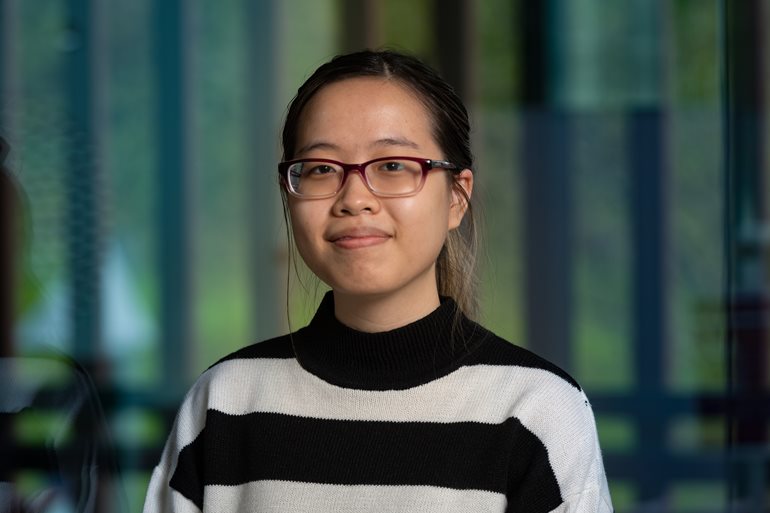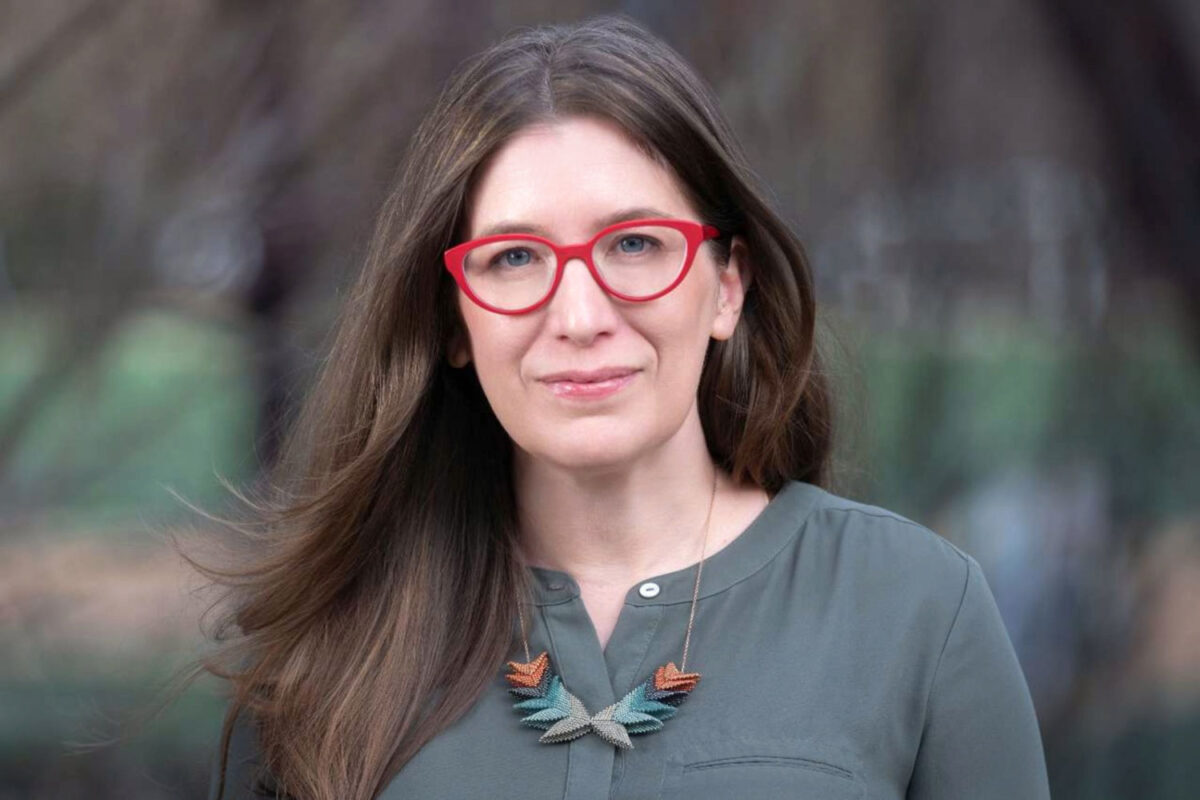
Minh Than, sophomore in the University of Washington Bothell’s School of Business, immigrated to the United States from Vietnam just three years ago. Before she came to the United States, Than loved to volunteer and did it often. She and her mom would bring hot meals, blankets, toothbrushes and toothpaste to people living in nearby impoverished communities. “We brought a lot of essential items,” she said. “Helping others and sharing kindness brings me a lot of joy. I loved to do it.”
It wasn’t until she was introduced to the Digital Scholars Program in UW Bothell’s Office of Connected Learning that she found an opportunity to do similar work in the local area, helping fellow immigrants in need.
“I know firsthand how hard it can be to assimilate in a new country,” she said. “It’s challenging when you are new to the language, culture and customs. It’s even harder when you have the pressure of understanding all those things in order to secure a job or do well in school.”
Working with the Washington West African Center, Than made its resources more accessible by assessing and updating the organization’s website. And by so doing, she removed some of the same barriers for other people that she had also faced and struggled to overcome.
“The work Minh did will impact hundreds, if not thousands of people who visit our site,” said Pa Ousman Joof, WAWAC’s executive director. “Because of her and the Digital Scholars Program, people in our community can find the help they need.”
Scholars who serve
The Digital Scholars Program is in its inaugural year at UW Bothell. The three-quarter program began in spring 2022 and will continue through autumn quarter. One of its primary goals is to provide first-generation students with skills in digital marketing, data analytics, social media and data visualization.
“Regardless of whether students plan to pursue a career in business, engineering, communications or health care, they will more than likely need digital skills,” said Kara Adams, director of connected learning. “This program is centered on providing students with necessary skills — while also helping them build their social network and make connections with professionals in the field.”
To this end, another primary goal of the program is to connect students who are looking to apply their digital skills with partner businesses and organizations that could use extra help. “Tasks at smaller companies frequently get put on the backburner due to a lack of staff which is where our students come in,” Adams said. “The students get fantastic experience while the partners get entry-level digital tasks completed — and inspire the future workforce.”
During her time at WAWAC over summer quarter 2022, Than said she took on a number of responsibilities. She created a community resource directory for the website, updated website content in its entirety — something that hadn’t been done in more than three years — and, finally, audited the website for accessibility.
“It was a big undertaking especially because I didn’t have any knowledge of website design going into it,” Than said. “But I was excited to learn.”
Committed to the cause
Prior to starting at WAWAC, Than and other digital scholars took a pre-autumn course in which they learn entry-level digital skills. During their community work, the scholars could then build on their skills with the mentorship of the partners.
Before Than revamped the WAWAC website, it had a lot of broken links and outdated information. “The lack of accessibility prevented our community members from easily finding resources,” Joof said. “They rely on these resources for their medical, educational and employment needs, so the work Minh did will make a significant impact.”
Recognizing how important her work was, Than took it upon herself to learn everything she could about website design even outside her coursework. She watched dozens of videos online and conferred with co-workers at WAWAC. She was determined to turn every challenge she encountered into an opportunity.
“Minh learned that many of our community members don’t frequently use computers and some don’t even own one. Her solution was to design the website to be mobile-friendly so it would be easy to use on a cell phone,” Joof said. “I was blown away by her commitment and efforts.”
Than said the program was just as beneficial for her. “I was able to learn so much in a relatively short amount of time,” she said. “The skills I gained in website design will help me in my business career, most likely in project management and marketing.”
Many mutual benefits
While still just a pilot, the program has already provided students with a wide variety of hands-on learning experiences and has provided partners with much-needed assistance.
I am proud of this program — and very proud of our students,” Adams said. “I had high hopes, but the impact the students have made on the companies and the impact the companies have had on our students have surpassed my expectations.”
The Digital Scholars Program, part of the Office of Connected Learning’s Husky Catalyst Initiative, is made possible by a gift from the Washington State Employees Credit Union.



